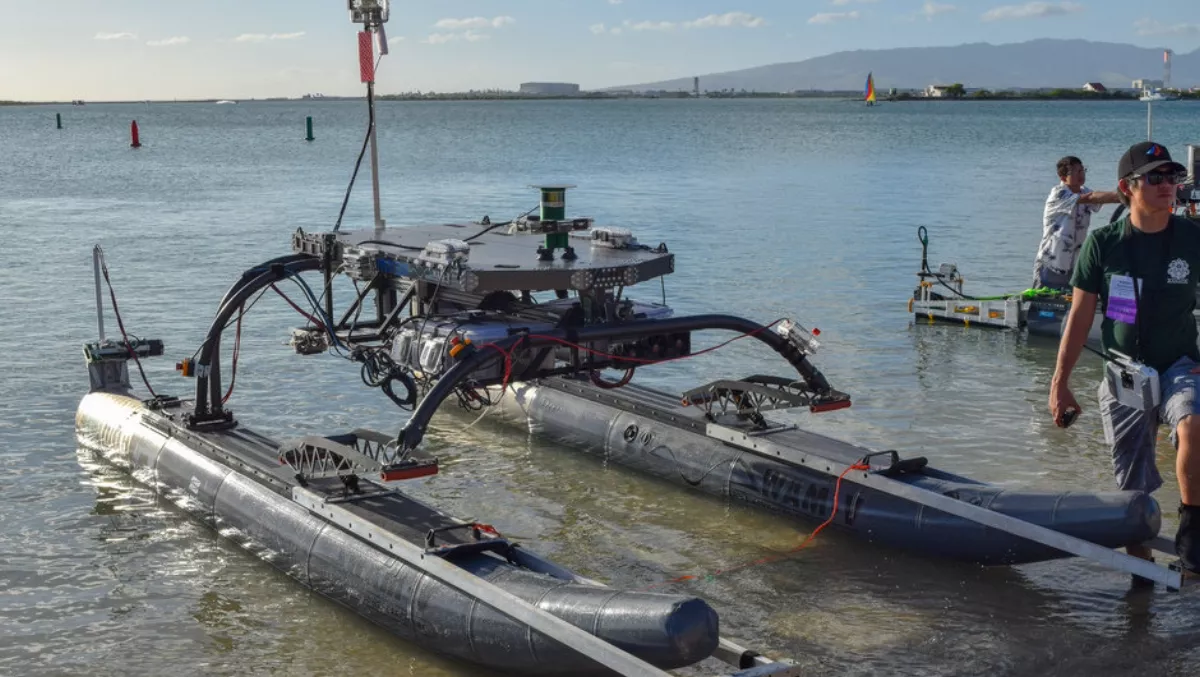
At the 2018 Maritime RobotX Challenge, Velodyne Lidar contributed mentorship and lidar sensors to 15 university teams competing in an autonomous maritime competition.
Held in Honolulu, Hawaii in December 2018, RobotX brought together teams from universities in the United States, Australia, China, Japan, Taiwan, and Singapore.
Participating teams built their vessels from the ground up, equipping them with propulsion, sensor, and control systems.
Velodyne's Puck and Ultra Puck lidar sensors were the key perception components enabling the vessels to operate autonomously.
During the competition, the teams' autonomous boats demonstrated navigation and control, obstacle avoidance, location and sequence, identification and docking, detection and delivery, underwater recovery, and situational awareness.
Each team created a website, technical design paper, presentation, and video to showcase their work.
The National University of Singapore was awarded the competition's top prize, while Australia's Queensland University of Technology finished second, and Embry-Riddle Aeronautical University, based in Daytona Beach, Florida placed third.
“Through the Maritime RobotX Challenge, next-generation engineers learn how lidar 3D perception empowers autonomous vessels,” says Velodyne Lidar president and chief commercial officer Mike Jellen.
“It is a privilege to work with these remarkable students as they reinvent maritime technology.
RobotX is an international, university-level competition designed to broaden student exposure to autonomous vehicle (AV) and robotic technologies in the maritime environment.
The event was organised by RoboNation, a non-profit organisation that seeks to empower students to use Science, Technology, Engineering, and Math (STEM) to learn about the wider world.
“This competition encourages student interest in autonomous robotic systems operating in the maritime domain, with an emphasis on the science and engineering of cooperative autonomy,” says RoboNation executive director Daryl Davidson.
“Velodyne's involvement in this event allows the students to gain experience with a state-of-the-art lidar and gives the company the opportunity to network with the top students in the world learning about autonomy. This is the technology that leading research and commercial organisations are using to bring exciting autonomous innovations to market today.
